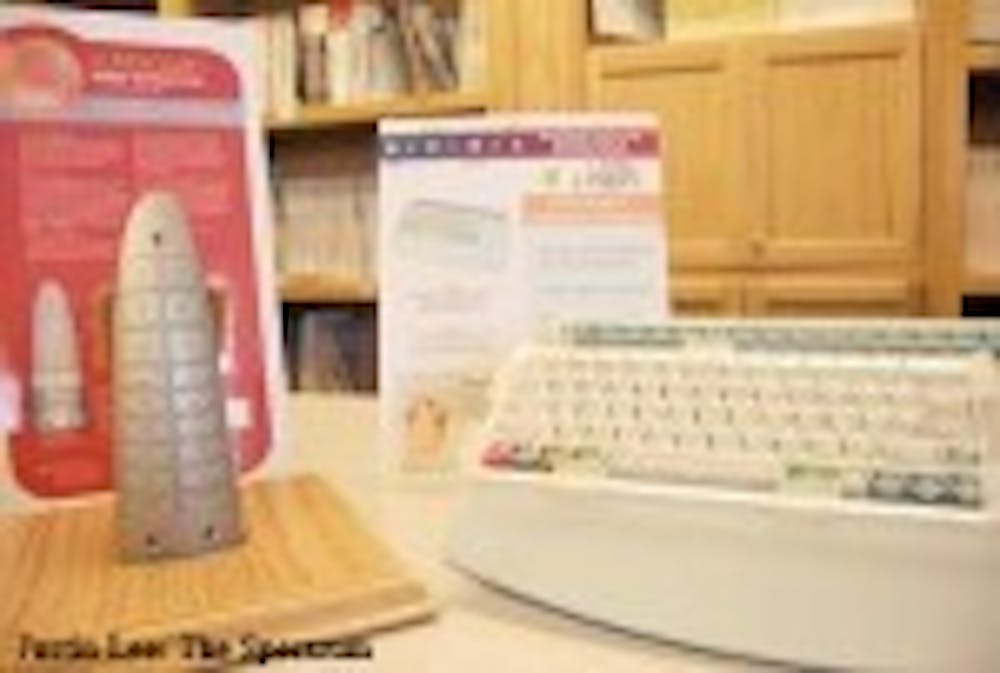An on-campus staff of 10 researchers housed in Kimball Tower on South Campus has been producing inventions to assist disabled and elderly people that can also benefit the general public.
After receiving a $4.7 million donation from the National Institute on Disability Rehabilitation Research in 2004, the Rehabilitation Engineering Research Center on Technology Transfer (T2RERC) at UB is at the end of a research term, and they have numerous products to show for it.
Developed by the T2RERC and produced by Black & Decker Corp. is the Lids Off Automatic Jar Opener, which helps users open jars with ease. This is one of 40 products that have been produced by the group to date which have reached mainstream consumers.
According to James Leahy, a project coordinator, T2RERC has been working with Whirlpool Corp. since August 2005 to develop a device that would allow users to control and check the status of their appliances with a remote control.
"Think of a senior in an assisted living complex or an apartment constantly going down to check the laundry," Leahy said. "Or if their refrigerator is leaking R134 coolant for example, this device would tell them if there is a problem."
He explained that although Whirlpool and the T2RERC have been developing Major Appliance Interface Devices primarily for senior citizens and people with disabilities, there will be mainstream applications in the future.
"All Whirlpool appliances will have sensors and communication devices eventually," Leahy said.
According to Leahy, in the future, built-in intelligence will enable washers, dryers, microwaves and refrigerators to immediately inform their owners of potential and severe problems.
T2RERC professionals also have plans to design Tupperware in a growing Chinese market.
"We're helping them design the next generation of Tupperware to be more user friendly and accessible," Leahy said.
He said that the Tupperware parties that were all the rage in the U.S. during the 1950s are considered illegal gatherings in communist China. Therefore, the brand had to open 2,000 stores throughout the country.
According to Leahy, the T2RERC has been working with investors, researchers and companies to bring new products to market since 1993 and has successfully transferred approximately 60 products over the last 15 years.
The T2RERC has built relationships with major companies like Whirlpool, Tupperware, White Rogers, Black and Decker and Kodak as well as with individual inventors that need assistance in developing or modifying a product.
The project is in its final year of operation as a product developer and is currently working under a one-year, no-cost extension with the project's financial supporter, the National Institute on Disability and Rehabilitation Research.
According to Jennifer Flagg, a project manager, the project will now focus on research and consultation rather than development.
"We're delving into uncharted territory," Flagg said. "Knowledge translation is a pretty new field, so some of the work we will be doing will be groundbreaking. It's neat to be in at the ground floor and know that the work you're doing is actually going to shape the field."





